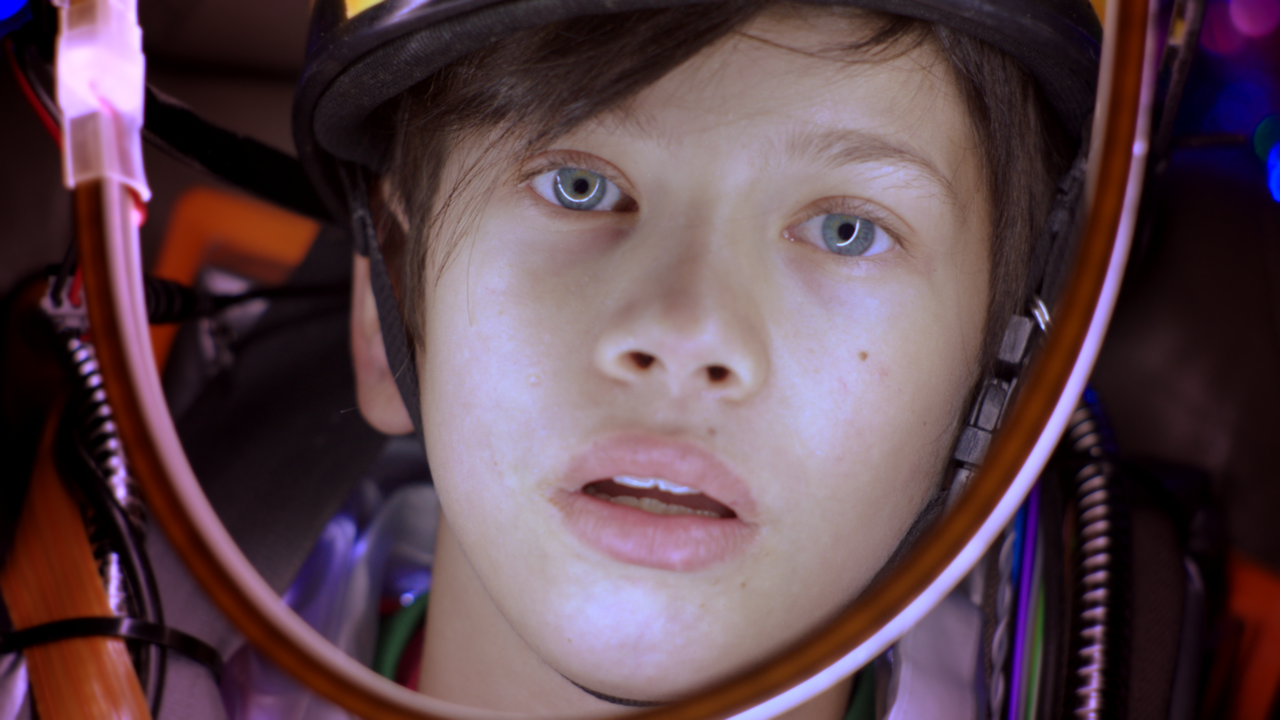Wake Up on Mars
(Sweden, 74 min.)
Dir. Dea Gjinovci
A wide-eyed refugee boy builds a spaceship in the forest while his sisters are bedridden in a comatose state. The family revolves around them, praying that their application for asylum in Sweden is successful. One watches Wake Up on Mars in anticipation as the outcome could determine whether or not they awake.
Fantasy and reality compete for the heart of this doc that sheds light on a mysterious illness called “resignation syndrome.” The film attempts to offset the devastating struggle at its core with a whimsical subplot that doesn’t quite land, but offers some tonal relief. Regardless, Wake Up on Mars is a devastating look at the effects of long-term alienation on a person, especially a young child.
Director Dea Gjinovci first read about the phenomenon in a 2017 article in The New Yorker titled The Trauma of Facing Deportation. Netflix released a short on the subject soon after called Life Overtakes Me, which brought further attention to what was going on in Sweden and was nominated for an Oscar. Gjinovci’s feature-length film positions itself as an attempt to witness the complex psychology of the unique circumstances that trigger a child to enter a vegetative, “apathetic” state.
The film’s subject is the Demiri family, who fled persecution in Kosovo beginning in 2007 and have been struggling to secure residency as refugees in Sweden. The two daughters fell ill around the news of their first settlement rejection. The stakes are higher as the film follows their subsequent application process, as other children have been known to wake up upon receiving approval for residency.
The film finds relief from these high stakes in the spaceship-building scenes with the youngest brother, Furkan. His way of processing his sisters’ trauma is attempting to reach them in another world: it breathes an imaginative playfulness into the film. In between the family taking care to include the unconscious sisters in their daily lives while navigating the resettlement process and doctors’ visits, Furkan searches for his own child-like solutions.
The film’s affectionate eye for Furkan’s way of processing his trauma can veer into jarring overproduction, taking the audience out of his imaginary world. There’s a scene where he goes to blast-off in a spaceship that looks more like it was made by a team of set designers than a kindergarten-age boy. While Furkan’s story might have been better executed with a lighter hand and in more of his own words, it is evident that his genuine feelings are being captured.
Wake Up on Mars is a moving introduction to a complex condition that first mystified Swedish doctors and has come to be a devastating hazard of the refugee experience. The film is not concerned with debunking rumours surrounding the oft-controversial diagnosis, but rather, it uses it as an opportunity to explore the immense pain of not having a place to call home for so long.
Wake Up on Mars streams as part of the Human Rights Watch Film Festival via Hot Docs Ted Rogers Cinema Feb. 19-22. Other docs in the festival include A La Calle, I Am Samuel, Love Child, and Maxima.
1














